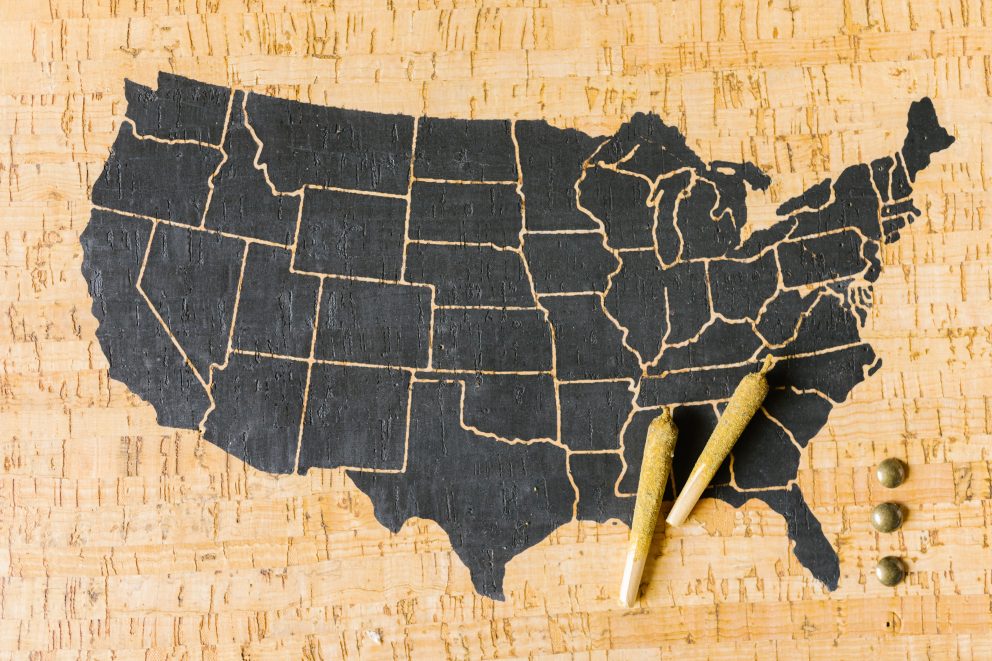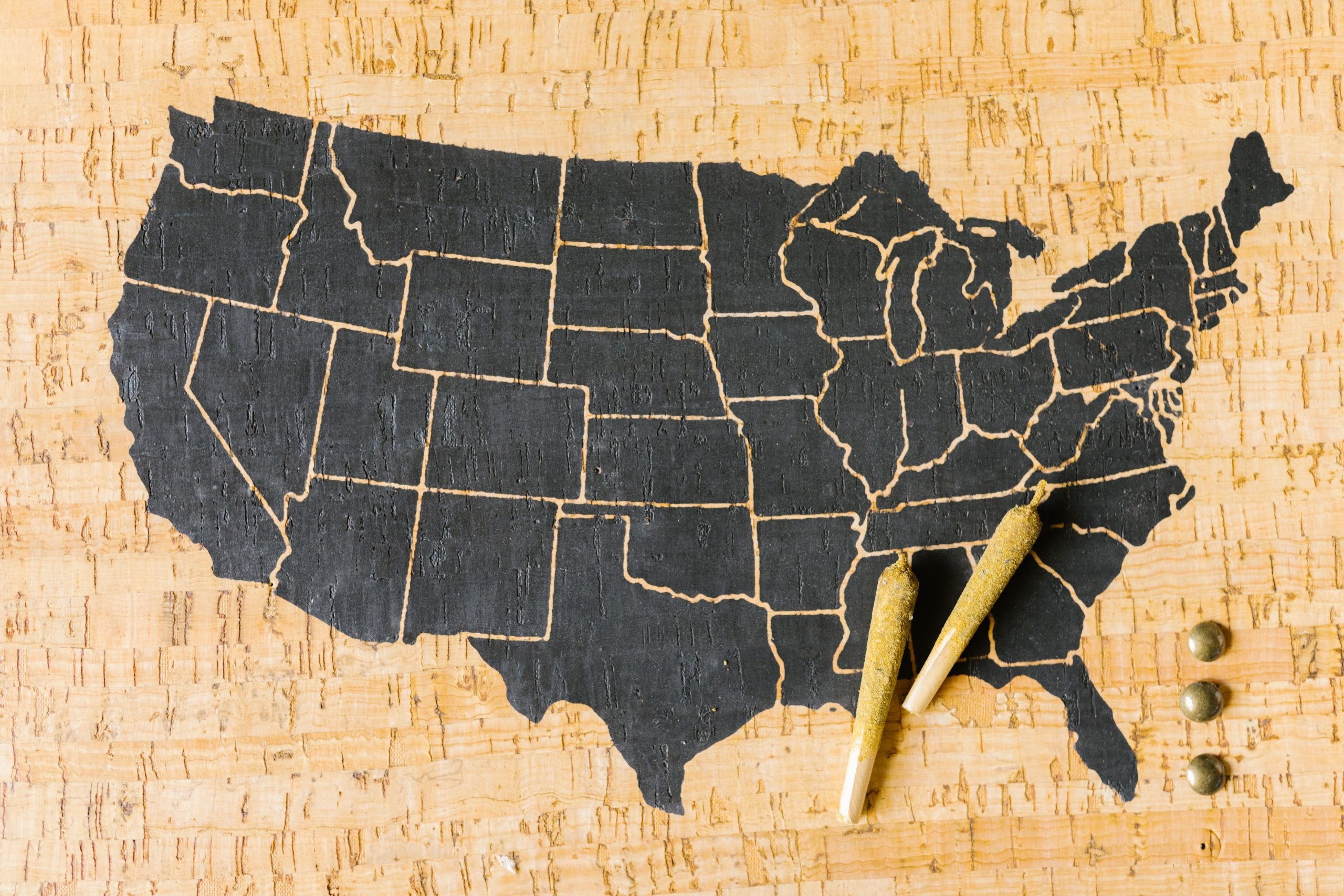The medical marijuana industry has experienced significant growth in recent years, and obtaining a medical marijuana card has become a common practice for individuals seeking access to high-potency cannabis and additional benefits. But how much does a medical marijuana card cost? In this blog post, we will explore the factors that influence the cost of a medical card, the advantages of having one, and provide a state-by-state breakdown of the requirements and costs associated with obtaining a medical marijuana card.
Key Takeaways:
- Choosing the right strain is essential for successful outdoor cannabis cultivation.
- Select a suitable growing spot with ample sunlight, protection from wind and rain, and good air circulation.
- Prepare the soil by adjusting pH levels and ensuring optimal soil composition.
- Implement pruning and training techniques to optimize light distribution and nutrient absorption.
- Prevent diseases and pests through natural methods like beneficial insects and companion planting.

Photo by Terrance Barksdale
Why Get a Medical Marijuana Card?
While recreational cannabis is legal in some states, obtaining a medical marijuana card provides several advantages:
- Higher Potencies: Medical cardholders often have access to high-potency strains that are not available to recreational users.
- Greater Limits: Medical patients can typically purchase and possess larger quantities of cannabis compared to recreational users.
- Cost Savings: Medical cardholders may be exempt from sales and excise taxes, resulting in significant savings on cannabis purchases.
- Home Cultivation: Some states allow medical cardholders to grow their own cannabis plants, providing a cost-effective and personalized supply.
- Reciprocity: Medical marijuana card reciprocity allows cardholders to purchase and consume cannabis in states where recreational use is not yet legalized.
Where is Medical Marijuana Legal?
Medical marijuana is legal in 37 states and the District of Columbia, with varying regulations and restrictions. Each state has its own set of qualifying conditions and product limitations, influenced by the federal prohibition of marijuana. It’s important to research and understand the specific rules in your state before applying for a medical marijuana card.
Cost of a Medical Marijuana Card
The cost of a medical marijuana card varies by state and typically includes fees for the initial application and subsequent renewals. The range of fees is usually between $50 and $200, and renewal periods vary from one to two years. The cost of a medical card is determined by state regulations, taxes, location, supply, product type, and potency. Unfortunately, there are limited options for reducing the cost of medical marijuana due to strict interstate transportation laws.
Factors that Affect the Cost of a Medical Card
The cost of a medical marijuana card depends on various factors, including:
- State Regulations: Each state determines its own fees and requirements for obtaining a medical card.
- Taxes: The applicable taxes on medical marijuana can affect the overall cost.
- Location: The cost may vary based on where you reside within a particular state.
- Supply and Product Type: Availability and the type of cannabis products can influence the cost.
- Potency: Higher-potency products may come at a premium price.

Photo by RDNE Stock project
State Requirements & Costs of a Medical Marijuana Card
Each state that has legalized medical marijuana has its own independent body responsible for administering the licensing system. Therefore, the cost of a medical card varies depending on where you live. In this section, we will discuss the specific requirements and costs associated with obtaining a medical marijuana card.
Qualifying conditions for medical patients are generally similar across most states and may include:
- Autism
- Cancer
- Crohn’s Disease
- HIV
- Fibromyalgia
- Hepatitis
- Chronic Nausea
- Post-Traumatic Stress Disorder (PTSD)
- Seizures
It is important to double-check with your state to ensure that your specific condition qualifies under its rules.
Regardless of the state, the application process for a medical marijuana card typically involves a physician’s evaluation, completing an online or paper application, and a defined waiting period. These steps are common requirements across all states.
Alaska
- Cost – $25
- Renewal Cost – $20
- Age Limit – 18
- Age Limit for Caregivers – 21
- Expiry – One year
- Reciprocity – Yes
Arizona
- Cost – $150
- Renewal Cost – $150
- Age Limit – 18
- Age Limit for Caregivers – 18
- Expiry – Two years
- Reciprocity – Yes (no purchases permitted)
Arkansas
- Cost – $50
- Renewal Cost – $50
- Age Limit – 18
- Age Limit for Caregivers – 21
- Expiry – One year
- Reciprocity – Yes (no purchases permitted)
California
- Cost – Up to $100, depending on the county
- Renewal Cost – Up to $100 depending on the county
- Age Limit – 18
- Age Limit for Caregivers – 18
- Expiry – One year
- Reciprocity – No

Photo by RDNE Stock project
Colorado
- Cost – $25
- Renewal Cost – $25
- Age Limit – 18
- Age Limit for Caregivers – 18
- Expiry – One year
- Reciprocity – Yes
Connecticut
- Cost – $100
- Renewal Cost – $100
- Age Limit – 18
- Age Limit for Caregivers – 18
- Expiry – One year
- Reciprocity – No
Delaware
- Cost – $50
- Renewal Cost – $50
- Age Limit – 18
- Age Limit for Caregivers – 21
- Expiry – One year
- Reciprocity – No
Florida
- Cost – $75
- Renewal Cost – $75
- Age Limit – 18
- Age Limit for Caregivers – 21
- Expiry – 210 days (Re-certification required every 70 days)
- Reciprocity – No
Georgia
- Cost – $25
- Renewal Cost – $25
- Age Limit – 18
- Age Limit for Caregivers – 21
- Expiry – Two years
- Reciprocity – Yes
Hawaii
- Cost – $38 for a one-year card/$77 for a two-year card
- Renewal Cost – $38 for a one-year card/$77 for a two-year card
- Age Limit – 18
- Age Limit for Caregivers – 18
- Expiry – One to two years
- Reciprocity – No
Illinois
- Cost – $50 for a one-year card/$100 for a two-year card/$125 for a three-year card
- Renewal Cost – $50 for a one-year card/$100 for a two-year card/$125 for a three-year card
- Age Limit – 18
- Age Limit for Caregivers – 21
- Expiry – One to three years
- Reciprocity – No
Iowa
- Cost – $100
- Renewal Cost – $100
- Age Limit – 18
- Age Limit for Caregivers – 18
- Expiry – One year
- Reciprocity – No
Louisiana
- Cost – Free
- Renewal Cost – Free
- Age Limit – 18
- Age Limit for Caregivers – 21
- Expiry – One year
- Reciprocity – No
Maine
- Cost – Free
- Renewal Cost – Free
- Age Limit – 18
- Age Limit for Caregivers – 21
- Expiry – One year
- Reciprocity – Yes
Maryland
- Cost – $25
- Renewal Cost – $25
- Age Limit – 18
- Age Limit for Caregivers – 21
- Expiry – Six years (Annual recertification required)
- Reciprocity – No
Massachusetts
- Cost – Free
- Renewal Cost – Free
- Age Limit – 18
- Age Limit for Caregivers – 21
- Expiry – One year
- Reciprocity – No
Michigan
- Cost – $40
- Renewal Cost – $40
- Age Limit – 18
- Age Limit for Caregivers – 21
- Expiry – Two years
- Reciprocity – Yes
Minnesota
- Cost – $200
- Renewal Cost – $200
- Age Limit – 18
- Age Limit for Caregivers – 21
- Expiry – One year
- Reciprocity – No
Mississippi
- Cost – $25
- Renewal Cost – $25
- Age Limit – 18
- Age Limit for Caregivers – 21
- Expiry – One year
- Reciprocity – No
Missouri
- Cost – $25
- Renewal Cost – $25
- Age Limit – 18
- Age Limit for Caregivers – 21
- Expiry – Three years
- Reciprocity – No
Montana
- Cost – $20
- Renewal Cost – $20
- Age Limit – 18
- Age Limit for Caregivers – 21
- Expiry – One year
- Reciprocity – Yes
Nevada
- Cost – $50 for a one-year card/$100 for a two-year card
- Renewal Cost – $50 for a one-year card/$100 for a two-year card
- Age Limit – 18
- Age Limit for Caregivers – 21
- Expiry – One to two years
- Reciprocity – No
New Hampshire
- Cost – $50
- Renewal Cost – $50
- Age Limit – 18
- Age Limit for Caregivers – 21
- Expiry – One year
- Reciprocity – Yes
New Jersey
- Cost – $50 ($20 with state assistance)
- Renewal Cost – $50 ($20 with state assistance)
- Age Limit – 18
- Age Limit for Caregivers – 21
- Expiry – One year
- Reciprocity – Yes
New Mexico
- Cost – Free
- Renewal Cost – Free
- Age Limit – 18
- Age Limit for Caregivers – 18
- Expiry – Three years (annual recertification required)
- Reciprocity – Yes
New York
- Cost – Free
- Renewal Cost – Free
- Age Limit – 18
- Age Limit for Caregivers – 21
- Expiry – One year
- Reciprocity – No
North Dakota
- Cost – $25
- Renewal Cost – $25
- Age Limit – 19
- Age Limit for Caregivers – 21
- Expiry – One year
- Reciprocity – No
Ohio
- Cost – $50
- Renewal Cost – $50
- Age Limit – 18
- Age Limit for Caregivers – 21
- Expiry – One year
- Reciprocity – No
Oklahoma
- Cost – $100
- Renewal Cost – $100
- Age Limit – 18
- Age Limit for Caregivers – 21
- Expiry – Two years
- Reciprocity – No
Oregon
- Cost – $200
- Renewal Cost – $200
- Age Limit – 18
- Age Limit for Caregivers – 21
- Expiry – One year
- Reciprocity – No
Pennsylvania
- Cost – $50
- Renewal Cost – $50
- Age Limit – 18
- Age Limit for Caregivers – 21
- Expiry – One year
- Reciprocity – No
Rhode Island
- Cost – $50
- Renewal Cost – $50
- Age Limit – 18
- Age Limit for Caregivers – 21
- Expiry – One year
- Reciprocity – Yes
South Dakota
- Cost – $75
- Renewal Cost – $75
- Age Limit – 18
- Age Limit for Caregivers – 21
- Expiry – One year
- Reciprocity – No
Texas
- Cost – Free
- Renewal Cost – Free
- Age Limit – 18
- Age Limit for Caregivers – No caregiver program
- Expiry – One year
- Reciprocity – No
Utah
- Cost – $15 for the initial card
- Renewal Cost – $5 per 30 days/$15 per six months
- Age Limit – 21
- Age Limit for Caregivers – 21
- Expiry – One year
- Reciprocity – Yes
Vermont
- Cost – $50
- Renewal Cost – $50
- Age Limit – 18
- Age Limit for Caregivers – 21
- Expiry – One year
- Reciprocity – No
Virginia
- Cost – $50
- Renewal Cost – $50
- Age Limit – 18
- Age Limit for Caregivers – 21
- Expiry – One year
- Reciprocity – No
Washington
- Cost – $1-$10
- Renewal Cost – $1-$10
- Age Limit – 18
- Age Limit for Caregivers – 21
- Expiry – One year (six months for minors)
- Reciprocity – No
Washington D.C.
- Cost – $100
- Renewal Cost – $100
- Age Limit – 18
- Age Limit for Caregivers – 18
- Expiry – Two years
- Reciprocity – Yes
West Virginia
- Cost – $50
- Renewal Cost – $50
- Age Limit – 18
- Age Limit for Caregivers – 21
- Expiry – One year
- Reciprocity – No
MMJ Card FAQs
Q1: Can I apply for a medical marijuana card if I’m not a resident of the state?
Residency requirements vary by state. While some states require applicants to be residents, others allow non-residents to apply and obtain a medical marijuana card. However, it’s important to note that non-residents may have limitations on purchasing and possession.
Q2: How long does it take to receive a medical marijuana card?
The processing time for medical marijuana card applications varies by state. It can range from a few days to several weeks. It’s advisable to check with your state’s licensing authority to get an accurate estimate of the processing time.
Q3: Can I use my medical marijuana card in states where it’s not legal?
No, you can only legally use your medical marijuana card in states where medical cannabis is recognized and permitted. It does not grant you authorization to use cannabis in states where it remains illegal, whether for medical or recreational purposes.
Q4: What if my doctor is not supportive of medical marijuana treatment?
If your primary care physician is not supportive or knowledgeable about medical marijuana, you may consider seeking a second opinion from a physician who specializes in medical cannabis. Many states have specific guidelines for physicians who can evaluate and recommend medical marijuana treatment.
Q5: Can I lose my job or face legal consequences for using medical marijuana?
While medical marijuana is legal in many states, it’s important to understand the laws and regulations specific to your state regarding employment and legal protections. Some states offer employment protections for medical marijuana cardholders, but others may not. It’s crucial to be informed about your rights and any potential risks associated with using medical cannabis.
Closing Thoughts
Obtaining a medical marijuana card can provide numerous benefits, including access to higher potency cannabis, larger possession limits, cost savings, home cultivation options, and reciprocity in certain states. However, the cost of a medical card varies based on state regulations and individual factors. It’s important to research your state’s requirements and costs before applying for a medical marijuana card.


